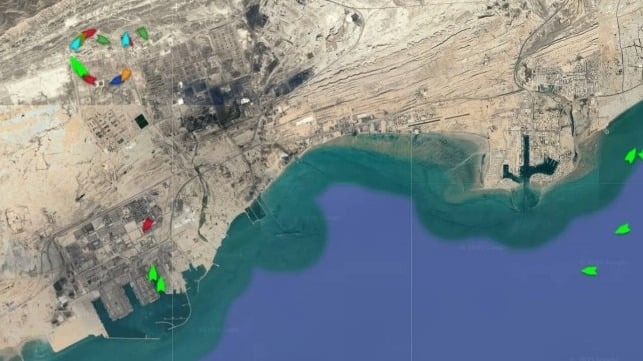Dado un alto el fuego entre Israel e Irán negociado por EEUU, el tráfico en el Estrecho de Ormuz ha vuelto a niveles casi normales. Pero los intensos niveles de interferencia del GPS, siguen siendo un problema y están obstaculizando la navegación. El pasado fin de semana, las interferencias de GPS aumentaron en un 60 por ciento. En su punto máximo, casi una cuarta parte de todos los buques experimentaron interrupciones del GPS al menos una vez en un período de 24 horas. La interferencia ha afectado a las señales AIS en toda la zona, no sólo en el lado iraní del Golfo, sino también en los Emiratos Árabes Unidos y Qatar. Buques cisterna de crudo; de productos; grandes navios de carga y GNL se encontraban entre los afectados. El martes, el CEO de Navios Maritime Partners, Angeliki Frangou, dijo a CNBC que la interrupción “continua” del GPS está afectando la seguridad en el Estrecho de Ormuz, y que algunos operadores están modificando sus itinerarios para tener en cuenta ello. Los transatlánticos, en particular, están esperando para transitar por el estrecho en horas del día, dijo.
With a U.S.-brokered ceasefire between Israel and Iran in effect, traffic in the Strait of Hormuz has returned to near-normal levels, including a revival of westbound transits into the Arabian Gulf. But the intense levels of GPS jamming in the region remain an issue, and are hindering navigation.
Last weekend, GPS jamming incidents surged by 60 percent, affecting about 1600 vessels (including small craft), according to consultancy Windward. At peak, nearly one quarter of all vessels in the region experienced GPS disruption at least once in a 24-hour period.
The jamming has affected AIS signals across the area – not just on the Iranian side of the Gulf, but in the UAE and Qatar as well. Crude tankers, product tankers, large boxships and LNGCs were among the vessels affected.
The disruption has prompted shipping stakeholders to take precautionary measures. QatarEnergy has reportedly halted nighttime movements of tankers and LNGCs near Mesaieed, citing safety concerns from GPS jamming affecting navigation.
On Tuesday, Navios Maritime Partners CEO Angeliki Frangou told CNBC that “continuous” GPS interruption is affecting safety in the Strait of Hormuz, and that some operators are modifying their itineraries to account for it. Liners, in particular, are waiting to transit the strait in daylight hours, she said.
“They don’t want to pass during the nighttime because they find it dangerous. So it’s a very fluid situation,” Frangou said. “Safety conditions are something that is at the forefront of our minds. This is why we are constantly monitoring all this.”
Windward has also found that some operators have been using AIS to broadcast conciliatory messaging in hopes of deterring Iranian attack. About 55 vessels used novel messages during the peak period of tensions from June 12-24, the firm told Reuters. Some of the messages are familiar from patterns seen in the Red Sea and Gulf of Aden during the Houthi shipping crisis, when many masters would type in the destination field on their AIS unit as “China owned” or “Russian crude” and then broadcast this signal to the world. The strategy was intended to make the vessel appear like an unsuitable target.


